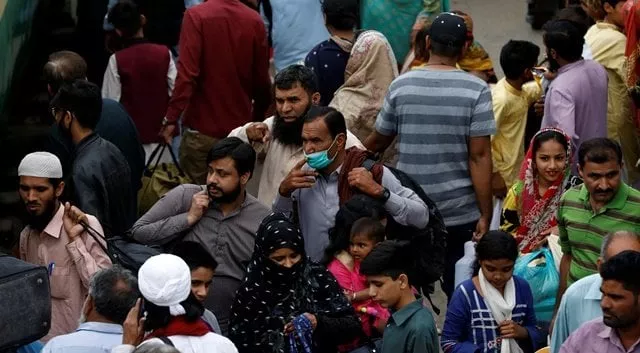Health, governance challenges ahead in second wave of coronavirus
Issues may reverse gains achieved in Covid’s first wave, warns monitoring report
ISLAMABAD:The country might face serious health and governance challenges at policy and implementation levels during the second wave of the coronavirus which, if not handled properly, might jeopardise and reverse gains made in the first phase of the fight against the pandemic, according to a Covid response monitoring report released on Friday.
Trust for Democratic Education and Accountability-Free and Fair Election Network (TDEA-FAFEN) observed in the first monthly report an increase in the number of confirmed cases from 313, 431 to 333,970 and 324 deaths (a rise from 6,499 to 6,823) across the country during the month of October.
The report is based on the data collected through stakeholders’ surveys and direct observation of employees deployed in 20 districts.
It urged the government for a more serious and focused response to tackle the rampant increase in the infections and deal with other critical factors, including limited infrastructural capacity at district levels and need for capacity building of front line responders of the pandemic.
According to the key findings of the report, the coordination mechanisms established to manage response during the first wave of the pandemic, largely remained intact in 14 of the 16 observed districts with key stakeholders, including healthcare staff, elected leaders and civil society organisations, representation on the coordination platforms.
The opinion of respondents, for the report, about the effectiveness of the mechanisms in 16 districts reflected a variance with majority, 78%, rated it between average to highly effective.
As per inclusive approach, most of the districts claimed to develop and implement safety and standard operating procedures (SOPs) in consultation with key stakeholders, including educational institutions, businesses, and traders’ associations. However, the opinions of key stakeholders and the observation of TDEA-FAFEN’s researchers revealed that implementation and enforcement of SOPs remained a serious concern.
The report further stated the capacity to handle the pandemic at district level remained an issue that caused significant variance in response of key stakeholders. The government officials in 16 districts claimed sufficient stock of personal protective equipment (PPEs) while representatives of doctors’ and paramedics’ associations partially endorsed the statement.
It maintained that health facilities across the districts remained a significant concern as the testing, quarantine capacity and other provisions, including ventilators are feared to fall short if the rate of infections is not slowed down.
According to the capacity in terms of numbers and skillset of healthcare providers, the report expressed concerns as doctors in majority of the districts (11 out of 16) and paramedic representatives in a third of districts (5 out of 14) agreed that their colleagues were not adequately trained or skilled to deal with Covid.
Apart from capacity and coordination, political and policy dynamics of the coronavirus response are increasingly critical during the month of October. Legislative oversight remained marginal while the politicisation of the pandemic response gathered momentum in the wake of the oppositions’ ongoing gatherings against the government.


COMMENTS
Comments are moderated and generally will be posted if they are on-topic and not abusive.
For more information, please see our Comments FAQ